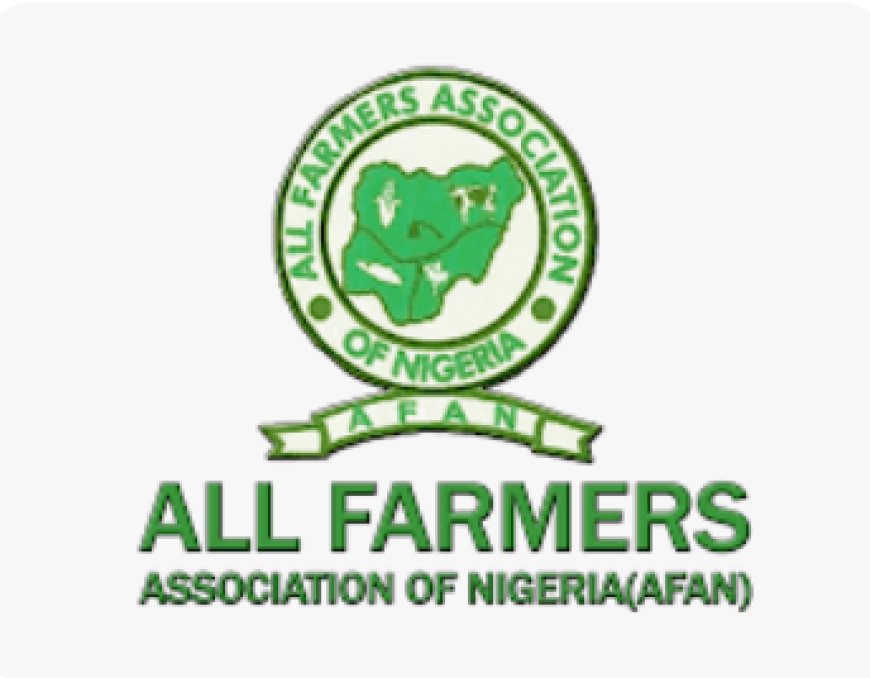AFAN, cashew farmers fault FG over food prices

The All Farmers Association of Nigeria and the National Apex of Cashew Farmers, Processors and Marketing Cooperative Limited have faulted the Minister of Agriculture and Food Security’s claim that increased local production is responsible for the recent drop in food prices across the country.
They warned that the current situation may be temporary unless farmers receive adequate government support.
The All Farmers Association of Nigeria said that while the minister’s observation on falling prices reflects current market realities, several underlying factors must be considered.
According to AFAN President, Kabir Ibrahim, “The minister’s statement is empirical from the current trend in food prices, but we can add seasonal or harvest period price as an important factor in the prevailing low prices in commodities.”
He further explained that the “current low or reduced price regime for most farm products can indeed also be attributed to the harvest season, zero tariff imports that took place between July and December last year, and low purchasing power of most Nigerians.”
AFAN cautioned that the development might not be sustainable if farmers are not adequately supported to return to the farm. “This may not be sustainable if the farmers are not supported to readily go back to the farm,” the statement warned.
It identified urgent areas of support, including the reduction of input costs such as fertilizers, agrochemicals, and labour, noting that farmers were facing higher production expenses despite increased output.
“The urgent support required is reduced prices of inputs such as fertilizers and other agro-chemicals as well as labour costs,” Ibrahim said.
The group added that there is renewed vigour among farmers and growing youth participation in agriculture, leading to higher agricultural output compared to previous years. “There’s renewed vigor in farming activities as well as more youth participation in agriculture, such that the current agricultural output is really higher than in previous years,” it said.
AFAN, however, stressed that farmers also suffer from the same economic pressures as other Nigerians. “Farmers, like all Nigerians, also buy those things that they did not produce. As such, they also enjoy the current low prices,” the statement noted.
The association called for a “state of emergency” on input costs and urged the government to introduce a Guaranteed Minimum Price system for farm produce. “AFAN is advocating for a state of emergency on input costs as well as the adoption of GMP (Guaranteed Minimum Price) for farm produce so that farmers can go back to the farm sustainably to avoid creating scarcity due to lethargy,” Ibrahim stated.
Similarly, the National President of the National Apex of Cashew Farmers, Processors and Marketing Cooperative Limited, Yunusa Enemali, faulted the minister’s claim, describing it as disconnected from the realities farmers face.
“Why is he telling us that it is because of local production? Is the government intervening in anything? I don’t know. The farmer will produce because he’s going to borrow. He borrows money and he needs to pay back, whether from a bank or from individuals,” Enemali said.
He explained that due to the absence of storage facilities, farmers are often forced to sell their produce cheaply to avoid losses. “And because he does not have a warehouse to keep it, so that it does not rot, he sells it out at a cheaper rate so that he can get his money. So what has production got to do with that? So that is the reason. Do we have warehousing? No.”
Enemali also drew attention to the poor state of infrastructure and the absence of government regulation in the market. “Go to Dei Dei in Abuja and see how rotten farm produce is, what they go through, because of the lack of warehousing. So these are some of the issues. Now, the government, do we have any price regulatory board? The answer is no,” he said.
He accused middlemen of exploiting farmers during the harvest season. “Everybody comes in because they know that the farmer has no choice and because it’s harvest season, the middleman will hit the price down to benefit the middleman to the advantage of the primary producer. So the farmer has no choice but to sell it.”
Enemali further questioned the minister’s understanding of production realities, saying, “The minister that is selling, is he on the farm? Is he farming? Does the minister understand the economy of production? The answer is no.”
He noted that without regulatory mechanisms, food prices remain unstable. “Do we have a market regulatory board? The answer is no. You buy tomatoes today at N5, tomorrow they tell you N10. Or next tomorrow they tell you N100. What can you do? Nothing. You buy rice for N50,000 per bag, next week they tell you N100,000. What would you do? Because there is no market regulatory board.”
Enemali urged the government not to take credit for the temporary decline in prices, insisting that the challenges confronting farmers remain unaddressed. “So the government shouldn’t take any advantage because it has fallen. They have not done anything.”
He questioned whether the fall in prices has translated into affordability for ordinary Nigerians. “If the food has fallen, is it affordable to the common man on the streets? Has the transport dropped? Has the fuel dropped? Is the infrastructure okay? So there are so many things that we need to consider before we don’t make a blunted statement. It’s wrong,” he stated.
Enemali concluded that policymakers are out of touch with the realities facing farmers. “Because they are not in tune with reality. That’s why they are just looking out for what they will use. The farmers are still going through pains,” he added.









